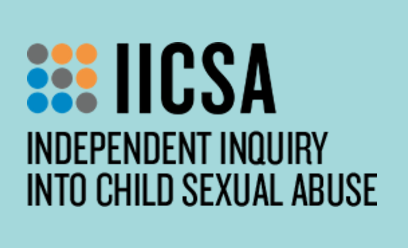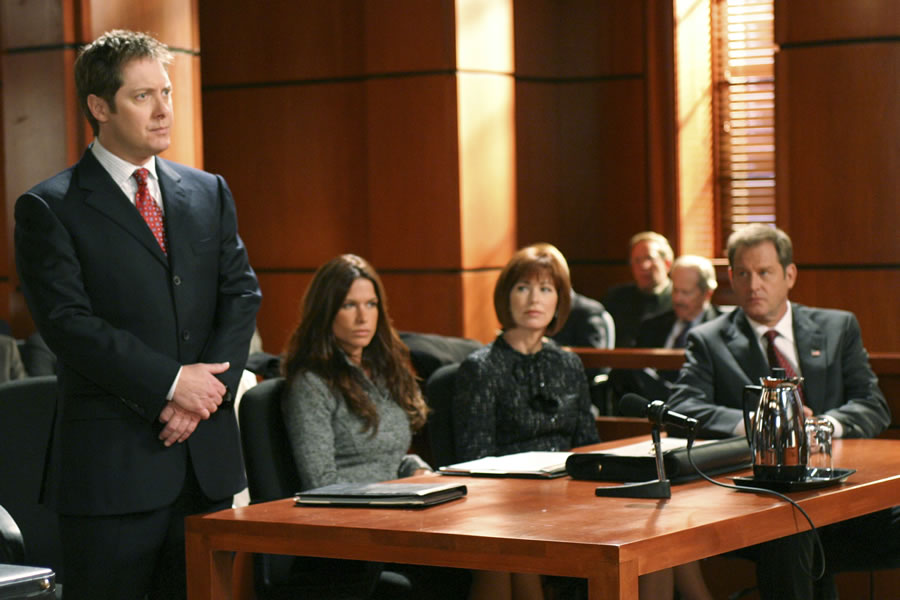Weekly Notes: legal news from ICLR – 3 October 2016
Welcome back! In this week’s roundup we catch up with some of the legal news and events that you may have missed over the summer vacation, as well as some more recent stories. as we prepare to get busy with the new legal term. Breaking… Brexit latest Government announces “Bill to repeal the European Communities
Welcome back! In this week’s roundup we catch up with some of the legal news and events that you may have missed over the summer vacation, as well as some more recent stories. as we prepare to get busy with the new legal term.
Breaking… Brexit latest
 Government announces “Bill to repeal the European Communities Act 1972 (but retain all the laws enacted or implemented thereunder) (because Brexit) 2016”
Government announces “Bill to repeal the European Communities Act 1972 (but retain all the laws enacted or implemented thereunder) (because Brexit) 2016”
The official announcement came from the Department for Exiting the European Union, and states that, as well as repealing the 1972 Act, “the new Bill will convert existing EU law into domestic law, while allowing Parliament to amend, repeal or improve any law after appropriate scrutiny and debate.”
Commentary (of which there will no doubt be lots) got off to an erudite start with
- Steve Peers on EU Law Analysis: Who exactly will ‘take back control’? Parliament vs executive after Brexit and the ‘Great Repeal Bill’
- Mark Elliott on Public Law for Everyone Theresa May’s “Great Repeal Bill”: Some preliminary thoughts
Meanwhile, in the courts, the Government (which has just published a bill that Parliament will have to approve) is continuing to defend the idea that Article 50 of the Lisbon Treaty can be activated without the need for an Act of Parliament. (Some inconsistency, surely…)
The so-called Brexitigation proceedings, which began in July (see Weekly Notes 22 July 2016) took an interesting turn this week when the Government was forced to disclose its skeleton argument, which it would have had to reveal when the case was heard in open court, but tried to keep under wraps until then, for some reason, possibly to avert the risk of embarrassment in the face of other lawyers’ scrutiny.
The application for disclosure was brought by the Peoples Challenge Group (a group of ‘concerned British Citizens’ involved in the challenge to the Government’s plans to use the Royal Prerogative to evoke Art 50), represented in the case by a team of counsel led by Helen Mountfield QC and instructed by Bindmans solicitors, who obtained an order from Cranston J rejecting the government’s claims to confidentiality, saying
against the background of the principle of open justice, it is difficult to see a justification for restricting publication of documents which are generally available under the Rules.”
And here is that skeleton, that they tried to keep in a closet, in the case of R (Miller) v Secretary of State for Exiting the EU (CO/3809/2016; CO/3281/2016) (PDF)
CSA Inquiry
 Reshufflequake
Reshufflequake
The Independent Inquiry into Child Sexual Abuse (IICSA) appears to be stumbling from one crisis to another. Barely two months after the appointment of its fourth chair, Professor Alexis Jay, came the suspension of leading counsel to the inquiry, Ben Emmerson QC. Though he has not actually spoken out in public, he was reported to be unhappy at the sheer unmanageable scale of the inquiry and wanting to restructure it to reduce its workload. Prof Jay apparently disagrees, and late on Wednesday night we heard that Emmerson had been suspended (apparently without being notified of this quite important fact). A statement from Bindmans, his solicitors, said:
Mr Emmerson has read this evening on the Internet that he has been suspended by IICSA. If and when any allegations are put to him, he will respond appropriately. He has no further comment to make at this time.”
Emmerson’s doubts about the scope and manageability of the inquiry, as reported in the media, seem to coincide with the opinion expressed by the former (third) chair of the inquiry, former New Zealand judge Dame Lowell Goddard, when giving written evidence to the parliamentary Home Affairs Committee in the wake of her own resignation.
The inquiry has amassed millions of pages of documents, but has yet to take evidence from any witnesses (of whom there are a growing number). It still does not have a proper Evidence Management System (EMS) to deal with the thousands (if not millions) of documents needed for public hearings, and has no fixed location for any such hearings to take place. Goddard and Emmerson (both of whom have evidently gazed with varying degrees of horror into the abyss) are not alone in questioning the inquiry’s ambit. Earlier this year the Metropolitan Police’s Operation Midland investigation collapsed following a recognition of the unreliability of key complainant evidence, notably that of the witness identified as “Nick” and promoted by the investigative journalism website Exaro News (which has itself now collapsed) thus calling into question the credibility of the lurid claims that there was some vast “Establishment” cover-up of a secret ring of well-connected paedophiles who conspired to corrupt, exploit and even murder their under-age victims. Indeed, it makes it all sound very like the moral panic engendered by claims of ritual satanic abuse that have been fairly comprehensively disproved in a series of earlier inquiries, though this hasn’t stopped such claims resurfacing from time to time, as in the current Hampstead cult case: see Matthew Scott as BarristerBlogger The so-called “Hampstead Satanic Cult” should be a warning to the credulous.
UPDATE
This story has been moving so fast it’s been hard to keep up with it. But after writing and updating the above on Wednesday and Thursday morning last week, we learned on Thursday afternoon that a senior lawyer in Emmerson’s team, Elizabeth Prochaska, had resigned from the inquiry, with effect from 15 September (was it kept secret, or backdated?) – leaving us to wonder whether there were any lawyers left at the inquiry, whose chair is now no longer a judge. As if that wasn’t enough, on Friday morning we learned that Emmerson QC had in fact resigned now. His letter of resignation, issued by Matrix Chambers, takes care to point out that:
There is no truth in suggestions that I have resigned due to a difference of opinion with you [ie Prof Jay] about the next steps for the Inquiry.
The full letter can be read here.
If anything else happens, we’ll add further updates here.
FURTHER UPDATE Sunday night
Well something did happen. Abigail Bright, another of the team lawyers, was said to have resigned, according to Politics Home. They report that “Top QC” Lord Pannick says:
This inquiry was obviously unmanageable when it was set up, and everything that has happened since has only confirmed that.
Anyone with any experience of inquiries will tell you that an inquiry needs to have closely defined terms of reference, not the terms of reference in this case, which are unlimited in time and geographical extent.”
As one or two people have already pointed out on Twitter, the person who set this inquiry up is now in charge of Brexit (see above). Nuff said.
Dates and Deadlines
A Very British Fire
A specially commissioned new play – light hearted and with music, to mark the 350th anniversary of the Great Fire of London, which finished in the west between Inner and Middle Temple, thus saving the latter’s Hall.
Event includes dinner in the Library and entertainment in Hall: Middle Temple Thursday 6 October 2016 from 6pm
The dress code is Black Tie. Tickets are £90 and are obtainable from the Treasury on 020 7427 4800.
The Greatest Fictional Lawyer
Atticus Finch? Rumpole? Perry Mason? Ally McBeal? Martha Costello? Arnie Becker from LA law? Elle Woods from Legally Blonde?
Debate, organised by It’s a Lawyer’s Life
Middle Temple Hall, 6pm for 6.30pm, 11 October 2016.
Tickets via Eventbrite

Law (and injustice) from around the world
Some of the stories we picked up during the long vacation.
Egypt
EU complains of crackdown on NGOs
The European Union External Action Service, the EU’s diplomatic arm, criticised the decision of an Egyptian court to freeze the assets of five prominent human rights defenders and three non-governmental organisations on 17 September.
EurActiv.com reported that they had been under renewed investigation for allegedly receiving foreign funds in a case that stretched back to 2011 and had caused a diplomatic crisis between Washington and Cairo. Rights groups quickly denounced the decision. Amnesty International called it “a shameless ploy to silence human rights activism” and described the court’s decision as a “reprehensible blow to Egypt’s human rights movement”.
Hong Kong
Student protest leaders sentenced
Human Rights Watch reported that a Hong Kong court sentenced three student leaders following their convictions for unlawful assembly and incitement in respect of the pro-democracy Umbrella Movement in 2014. Alex Chow was given a three weeks sentence with a one year suspension while Joshua Wong and Nathan Law were given community service orders of 80 hours and 120 hours, respectively.
In sentencing these students, Hong Kong authorities’ behavior increasingly resembles that of their counterparts in Beijing,” said Sophie Richardson, China director of HRW. “Leading peaceful protests is no crime, and the charges against the three should be dropped.”
For coverage of the pro-democracy demonstrations at the time: see Weekly Notes 3 October 2014.
India
Courts close for lack of judges
The Economic Times of India reported that “Karnataka High Court’s halls of justice [have] shut amid shortage of judges” owing to a standoff between the executive, which in 2014 sought to impose a National Judicial Appointments Commission (NJAC) to replace the collegium established two decades ago, and the Supreme Court, which struck down the NJAC move as violating the constitution. In consequence, judges are not being appointed, and courts are having to close, despite an ever growing list of pending cases.
Report: Economic Times
In the meantime the conduct of the Collegium has been criticised by one of its own members as being opaque and biased, and unable to prevent the appointment of a corrupt judge. See Times of India
Israel
The Supreme Court of Israel ruled in August that Franz Kafka’s manuscripts are the property of the National Library of Israel, according to the Guardian, thus ending a lengthy legal battle with the heirs of Max Brod, a friend of Kafka and the executor of his estate to whom he had willed his manuscripts after his death in 1924. Brod, having failed to honor Kafka’s intention that the mss should all be burned, had in turn bequeathed them to his secretary, Esther Hoffe, with a request that they be donated to a university or library in Israel or a similar organisation. Instead Hoffe gave them to her daughters, prompting a claim by the state of Israel.
Kafka, a Jewish novelist who wrote in German while living in Prague, never published any of his writings during his lifetime; and if Max Brod had acted in accordance with his wishes as a testator, we could never have read such classic novels as The Trial, The Castle and Metamorphosis (the short story in which a man wakes up to find he has been transformed into a giant insect). The disconcerting surrealism of his narrative style has given rise to the adjective “Kafkaesque”.
Also a bit Kafkaesque, or at any rate frustrating, have been my attempts to track down the judgment of the Supreme Court, on its own website, which purports to publish its judgments.
See also: Haaretz, Top Court Gives Israel’s National Library Possession of Disputed Franz Kafka Papers
Jordan
Writer shot dead outside court
A Jordanian writer, Nahed Hattar was killed outside the court in Amman where he was being tried for insulting Islam after sharing an Isis-themed cartoon on Facebook, according to the Guardian.
In a statement, Hattar’s family called on the government to hold accountable all those who had incited violence against him. “Many fanatics wrote on social media calling for his killing and lynching, and the government did nothing against them,” they said.
Philippines
Shoot to kill policy
Newly elected President Rodrigo Duterte, who took office in June, has instituted a war on drugs which includes a policy of allowing the police and vigilantes to shoot to kill anyone involved in the drugs trade – not just as dealers but also as addicts. In August a senate inquiry confirmed that over 712 had been murdered by officers and over 1000 killed by vigilantes.
The President’s ‘shoot to kill’ orders to hunt down drug suspects has provided police, vigilante groups and ordinary citizens with a green light to commit murder,” says Amnesty International.
More recently, President Duterte declared on television that while Hitler had managed to slaughter 3m Jews (sic), he would be happy to see 3m drug addicts meet their death.
The International Association of Law Libraries is planning to hold next year’s annual meeting in Manila, the capital of the Philippines. Although ICLR attended this year’s conference, in Oxford, I sincerely doubt I would wish to attend it next year, in a country where so little respect is accorded to due process and the rule of law. I wonder if the IALL should reconsider.
United States
Presidential veto on Saudi claims overruled by Congress
A group of 9/11 victims may now be able sue the Saudi government for damages, after President Obama’s attempt to veto the enactment of the Justice Against Sponsors of Terrorism Act (JASTA) was overruled by the House of Representatives voting by a majority of 348 to 77. The law will grant an exception to the legal principle of sovereign immunity in cases of terrorism on US soil, according to the Independent.
The President said afterwards that Congress was making a “mistake” and setting “a dangerous precedent” because of the risk that failure to adhere to the principle of sovereign immunity would result in the United States being sued around the world by those claiming to be victims of its activities. He also said the enactment carried “grave implications” for US national security.
And finally,
a nice video from RightsInfo, to mark the 70th anniversary of the Nuremberg Trials, entitled Human rights: what could be more British than that?
That’s it for now. Our thanks to all who flagged up stories, via their blogs (which we always try to acknowledge) and via Twitter (where useful tweets are retweeted).
This post was written by Paul Magrath, Head of Product Development and Online Content at ICLR, who also tweets as@maggotlaw. It does not necessarily represent the opinions of ICLR as an organisation. Comments welcome on Twitter@TheICLR.
Sign up now for weekly email alerts from this blog. Just put your email address into the box on the left.
